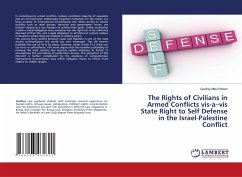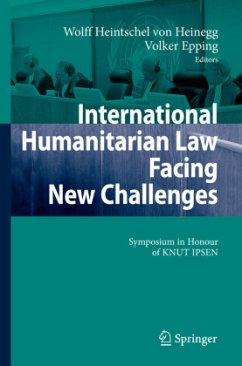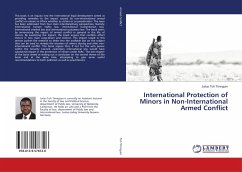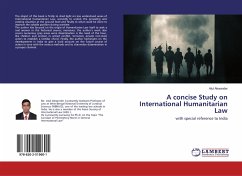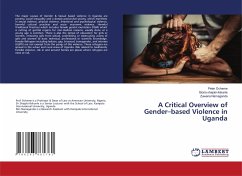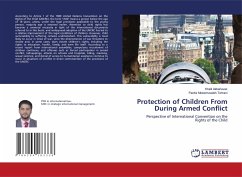
Protection of Children From During Armed Conflict
Perspective of International Convention on the Rights of the Child
Versandkostenfrei!
Versandfertig in 6-10 Tagen
27,99 €
inkl. MwSt.

PAYBACK Punkte
14 °P sammeln!
According to Article 1 of the 1989 United Nations Convention on the Rights of the Child (UNCRC), the term "child" means a person below the age of 18 years, unless, under the legal provisions applicable to the young person, majority age is attained earlier. Attention to child rights has become a universal necessity in light of the international documents referred to in this book, and widespread adoption of the UNCRC has led to a relative improvement of the legal conditions of children. However, child vulnerability to suffering remains undiminished. This vulnerability is most likely to occur in ...
According to Article 1 of the 1989 United Nations Convention on the Rights of the Child (UNCRC), the term "child" means a person below the age of 18 years, unless, under the legal provisions applicable to the young person, majority age is attained earlier. Attention to child rights has become a universal necessity in light of the international documents referred to in this book, and widespread adoption of the UNCRC has led to a relative improvement of the legal conditions of children. However, child vulnerability to suffering remains undiminished. This vulnerability is most likely to occur in times of war, since the phenomenon of war threatens to violate and, in some cases, does violate children's rights, including the rights to education, health, family, and even life itself. According to a recent report from international assemblies, compulsory recruitment of children continues, and offenses such as forced participation in armed conflict, kidnappings, attacks on schools and hospitals, killing, maiming, sexual violence, and denial of access to humanitarian assistance continue to occur in situations of conflict in direct contravention of the provisions of the UNCRC.



